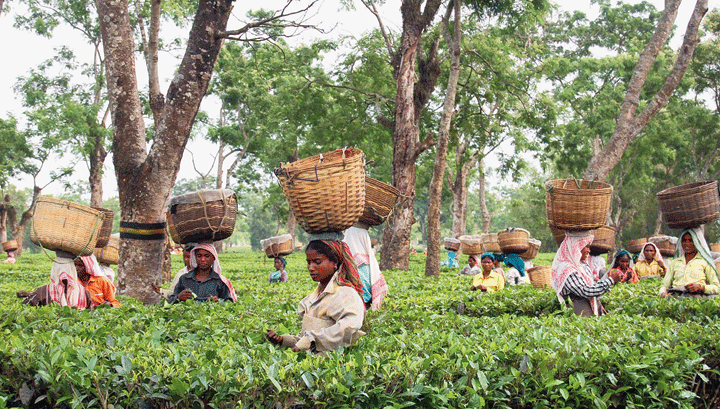Small indigenous growers in Assam will get upto 30 bigha of government highland and ceiling surplus land for special cultivation like tea, coffee and rubber under the state Land Policy, 2019.
“Government highland and ceiling surplus land suitable for special cultivation of tea, coffee, rubber etc may be identified and allotted to the indigenous small growers who have already been registered with state/central government agencies,” said the policy, which was approved by the state cabinet recently and subsequently released by Assam chief minister Sarbananda Sonowal here.
The policy said while giving allotment of land to small indigenous growers for special cultivation, preference shall be given to indigenous youths coming from families below poverty line, other indigenous educated unemployed youths and co-operatives of indigenous unemployed youth. It, however, sets a rider that the beneficiaries should take special cultivation as a means of livelihood.
The policy puts restriction on allotment or settlement of land for special cultivation barring these three categories of beneficiaries. Multiple members of a same family will also not be entitled to such land.
The 17-page policy was prepared by the state revenue and disaster management department. It incorporates, partially or in toto, around 40 suggestions of Hari Shankar Brahma-headed Committee for Protection of Land Rights of Indigenous People.
For prompt utilisation of the land the committee makes it mandatory to utilise the allotted land for the special cultivation within three years of allotment.
“Failing which, the allotment shall stand cancelled automatically,” it said.
An official associated with the land policy said that stress was laid on special cultivation keeping in mind two factors —addressing the state’s unemployment problem as well as proper utilisation of the land.
The maximum limit for allotment of land for special cultivation to registered co-operative society will be 150 bigha.
“Special periodic leases may be issued for such land settled for special cultivation in conformity with the provisions of the Assam Land and Revenue Regulation, 1886. No part of land under special cultivation shall be transferred or alienated without the prior approval of the government,” the policy said.











